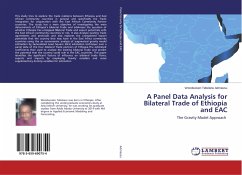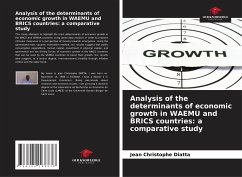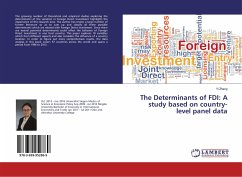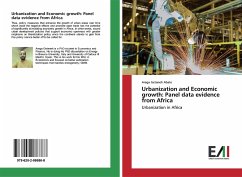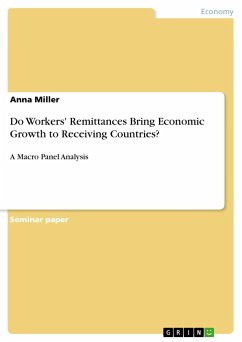
Economic Growth and FDI in SSA Countries: Dynamic Panel Data Analysis
Versandkostenfrei!
Versandfertig in 6-10 Tagen
36,99 €
inkl. MwSt.

PAYBACK Punkte
18 °P sammeln!
The emerging FDI and growth literatures stipulate that the relationship between FDI and growth is highly heterogeneous across countries and thus have not won a common consensus among economists. Therefore, this study analyzes the relationship between FDI and economic growth in 31 SSA countries using panel data from 1992 to 2009 obtained from World Development Indicators and World Bank's Worldwide Governance Indicators of 2010 using system GMM econometric technique. As the panel cointegration test shows existence of long run relationship between FDI and economic growth, the causality test is un...
The emerging FDI and growth literatures stipulate that the relationship between FDI and growth is highly heterogeneous across countries and thus have not won a common consensus among economists. Therefore, this study analyzes the relationship between FDI and economic growth in 31 SSA countries using panel data from 1992 to 2009 obtained from World Development Indicators and World Bank's Worldwide Governance Indicators of 2010 using system GMM econometric technique. As the panel cointegration test shows existence of long run relationship between FDI and economic growth, the causality test is undertaken and the finding shows that the causality is unidirectional, causality running from FDI to growth in the entire sample countries. However when the countries are split into two: 19 low income countries and 12 middle income countries, the causality result is the same as that of all sample countries in the case of low income countries whereas bidirectional causality is evidenced in the case of middle income countries.





